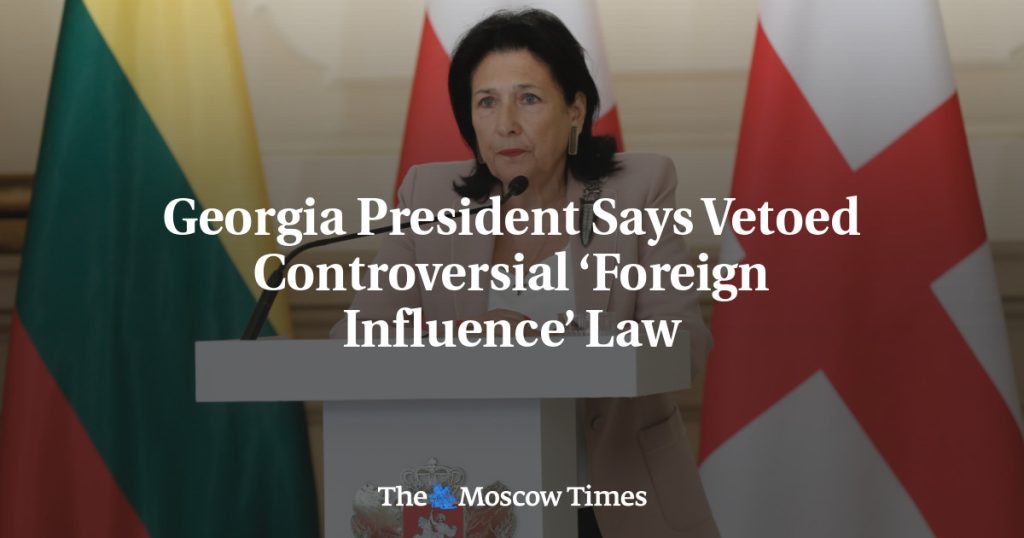Georgian President Salome Zurabishvili vetoed a controversial “foreign influence” law that has caused widespread protests and concerns about the country’s European aspirations. The ruling Georgian Dream party passed the legislation despite objections from the public, who fear that Georgia is moving closer to Russia and away from its pro-Western stance. The protests have been unprecedented for the nation, where the majority of the population supports joining the European Union and NATO, and opposes closer ties with Russia. Zurabishvili described the law as being similar to Russian legislation used to suppress dissent, and she believes it contradicts the Georgian constitution.
The European Union has warned that the “foreign influence” law is not compatible with Georgia’s aspirations to join the EU, which is a fundamental part of the country’s constitution. Despite Zurabishvili’s veto, the ruling Georgian Dream party has enough members in parliament to override it. Prime Minister Irakli Kobakhidze has indicated that the party is willing to consider amendments proposed by the president, but Zurabishvili has rejected the idea of engaging in discussions that she views as insincere. The law requires NGOs and media organizations that receive over 20% of their funding from abroad to register as entities influenced by a foreign power. Georgian Dream argues that the legislation aims to enhance the transparency of foreign funding for NGOs.
The dispute over the “foreign influence” law highlights the tension between the Georgian government and civil society, as well as the country’s relationship with Russia and the European Union. The protests against the legislation reflect the Georgian population’s desire to maintain a pro-Western orientation and resist potential Russian influence. The bill’s critics see it as a threat to democratic values and freedom of expression in Georgia. Zurabishvili’s veto represents a pushback against what she views as a Russian-style law that undermines the country’s democratic principles. The president’s refusal to engage in what she considers to be disingenuous negotiations demonstrates the deep divide between her and the ruling party on this issue.
The political situation in Georgia has implications for the country’s future trajectory and its relationship with the European Union. The tensions over the “foreign influence” law raise questions about Georgia’s commitment to democratic values and EU membership. The protests and the president’s veto signal a strong public resistance to any actions that could jeopardize Georgia’s pro-Western orientation. The government’s insistence on passing the law despite widespread opposition underscores the challenges facing Georgian democracy and its aspiration to align with European standards. The outcome of this conflict will have a lasting impact on Georgia’s internal dynamics and external relations with key international partners.
In conclusion, the veto by President Zurabishvili on the “foreign influence” law reflects the deep divisions within Georgian society and the government over the country’s direction. The pushback against the legislation from civil society and the EU underscores the importance of democratic principles and freedom of expression in Georgia’s political landscape. The standoff between the president and the ruling party highlights the complexities of Georgian politics and its aspirations to integrate with European institutions. The outcome of this dispute will shape Georgia’s future path and its relationship with both Russia and the European Union, with significant implications for the country’s democratic development and international standing.


